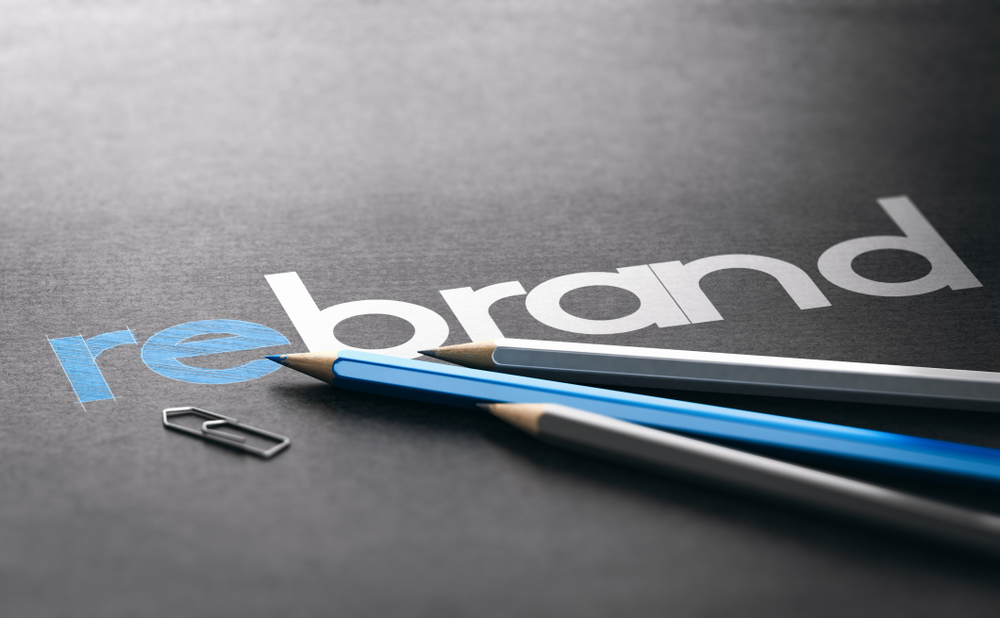
Branding is a powerful business tool that can help to refresh the image of a company. A successful rebrand, which respects the brand’s legacy and core image, can be key to reaching new audiences and advertisers.
Changing a logo that fans cherish can be tricky and, if done wrong, can often disappoint and alienate fans of the organisation. The world of esports is no stranger to these rebrands, both good and bad, which gives this article plenty of material. In no particular order, Esports Insider lists the best and worst esports rebrands.
Best Esports Rebrands
Fnatic
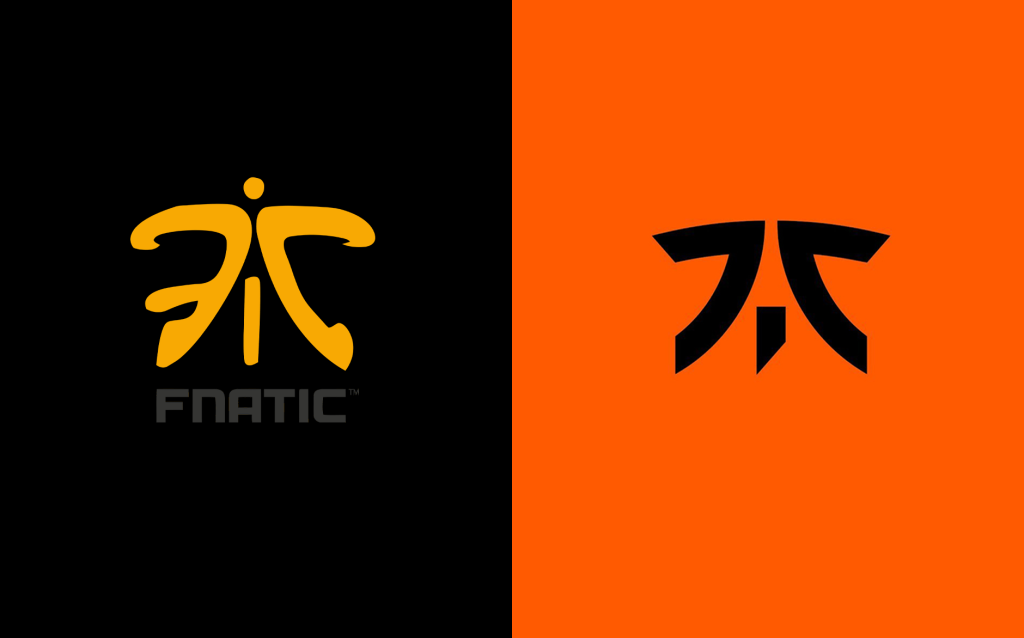
In January 2020, Fnatic unveiled a more minimalistic, simpler version of its logo making it the company’s third rebrand in 15 years. Based in the UK, Fnatic has a long and storied history within the global esports scene, such as being the inaugural League of Legends World Champion in 2011, and claiming CS:GO’s first Major in 2013.
The organisation’s legacy has led Fnatic’s brand to become highly recognisable. This was something the organisation was clearly aware of in 2020. The newer iteration didn’t make any major changes to the mascot, but smoothened out the edges, modernising the logo while honouring the brand’s legacy.
Fnatic’s orange colour scheme remained intact, and the main logo itself was modernised to make it more streamlined. As a result, the rebrand was met with praise from the community across social media platforms, including Reddit.
EU LCS to the LEC
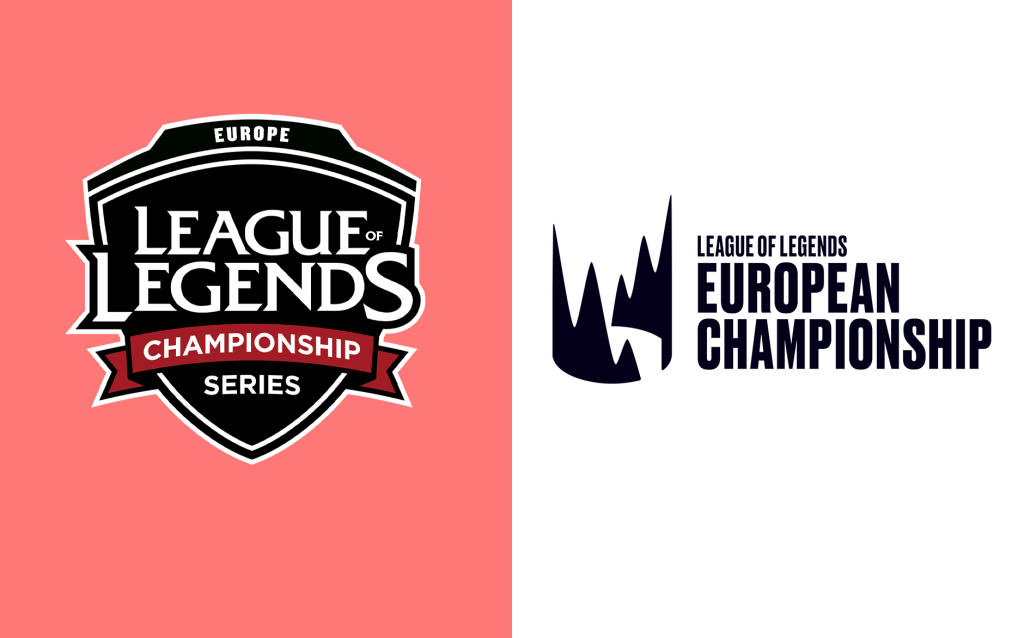
In 2018, Riot Games rebranded the premier European League of Legends (LoL) esports league, to the League of Legends European Championship (LEC). The LEC was renamed from the League of Legends European Championship (EU LCS) which was originally founded in 2013.
At this point the LCS was an integral part of the LoL ecosystem and whilst the change surprised some onlookers, it represented a fresh start for the league as new changes were introduced.
Alongside the name change, the former LCS logo was rebranded to what resembled a crown. The new LEC branding was revealed via a sizzle-reel video on November 20, 2018, with fan reactions to the rebrand being mostly positive.
With the rebrand, Riot Games discontinued the previous promotion and relegation format and picked 10 franchise teams from Europe to compete in the LEC every year. Riot later expanded European LoL esports to the Middle East, Turkey, Africa and CIS regions, renaming LEC to the League of Legends EMEA Championship while retaining the acronym.
MOUZ
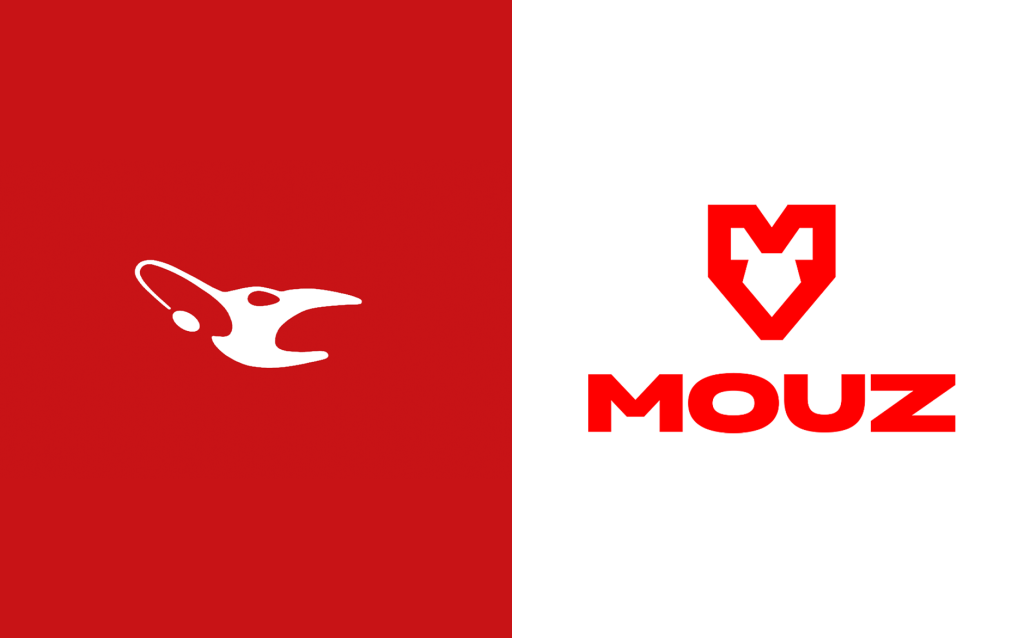
Formerly known as Mousesports, the German esports organisation dropped its old logo in 2022, rebranding to a modern red mascot and changing the name of the organisation to MOUZ.
Before the rebrand MOUZ had become a well-known esports organisation with a strong presence in Counter-Strike since its inception in 2002. Since 2022, the organisation has been expanding to newer FPS titles such as VALORANT and Rainbow Six Siege, whilst continuing to grow its presence in Counter-Strike.
MOUZ’s rebrand was met with positive reactions across social media, resulting in massive CS:GO sticker sales for the organisation’s new logo. However, a handful of fans hoped that the old logo would still be present in some way and modified, and wished that the organisation didn’t replace it entirely.
Oxygen Esports
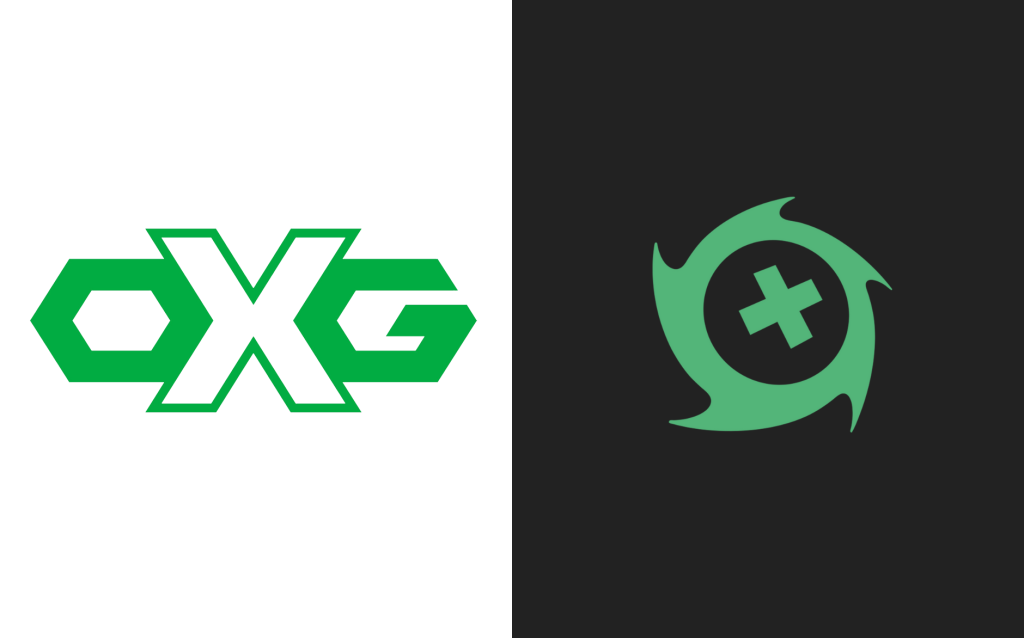
Whilst not as known as other brands on this list, New-England-based esports organisation Oxygen Esports is one that had to be mentioned. It rebranded the simple ‘OXG’ wordmark to a brand new hurricane-esque logo. The outer emblem of the logo is shaped like a hurricane, and the ‘X’ represents the organisation’s top-tier Call of Duty team called ‘Boston Breach’.
The logo upgrade was intended to signify the brand’s progress as a “scrappy upstart in Rocket League and Rainbow Six, to competing in the most coveted esports leagues.” Unlike many of the rebrands announced around the same time of OXG’s rebrand, community reactions were mostly positive.
Despite the success of the rebrand, there were reports of Oxygen Esports ceasing operations in August 2024. However, the organisation’s CODL roster, Boston Breach, still competes in the Call of Duty League, making the organisation active.
Worst Esports Rebrands
Hellraisers
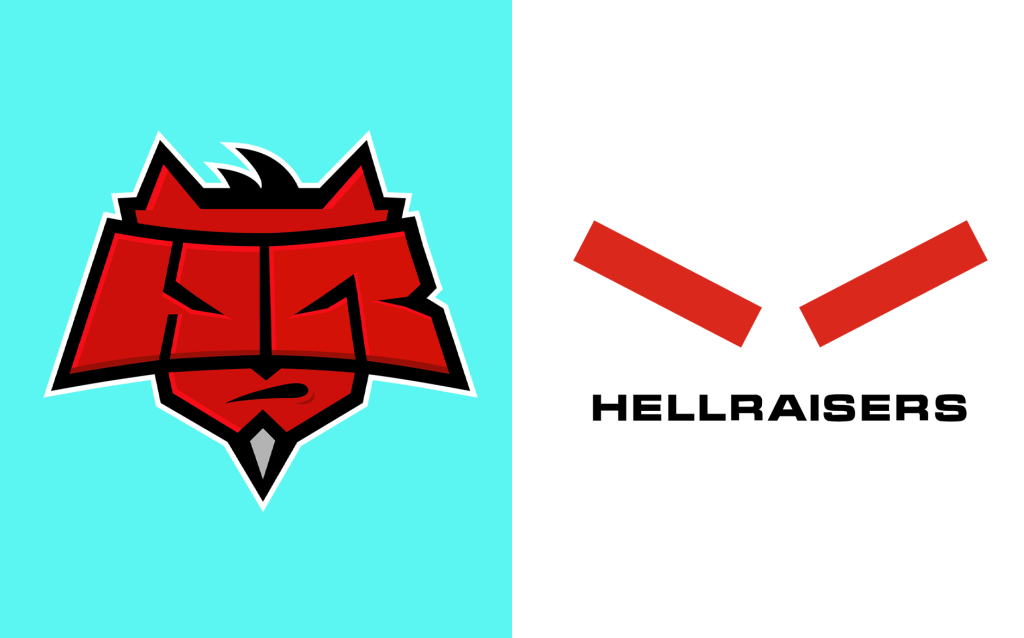
In 2020, Ukrainian esports organisation Hellraisers replaced the team’s existing demon-like mascot with what resembled two arched eyebrows. The extremely simple approach outraged fans of the organisation, with many of the community claiming that the excessively minimal replacement for the old mascot lacked character, with many wanting the previous mascot back.
To add to the rocky rebrand reveal, the social media post announcing the rebrand claimed that the organisation was 10 years old, but Hellraisers had only existed for around six years at the time of the rebrand reveal.
Just a year after the rebrand and the subsequent fan outrage, Hellraisers parted ways with its CS:GO roster, and then released its teams in DOTA 2 and other titles. As of 2024, Hellraisers are no longer active as an esports organisation.
Evil Geniuses
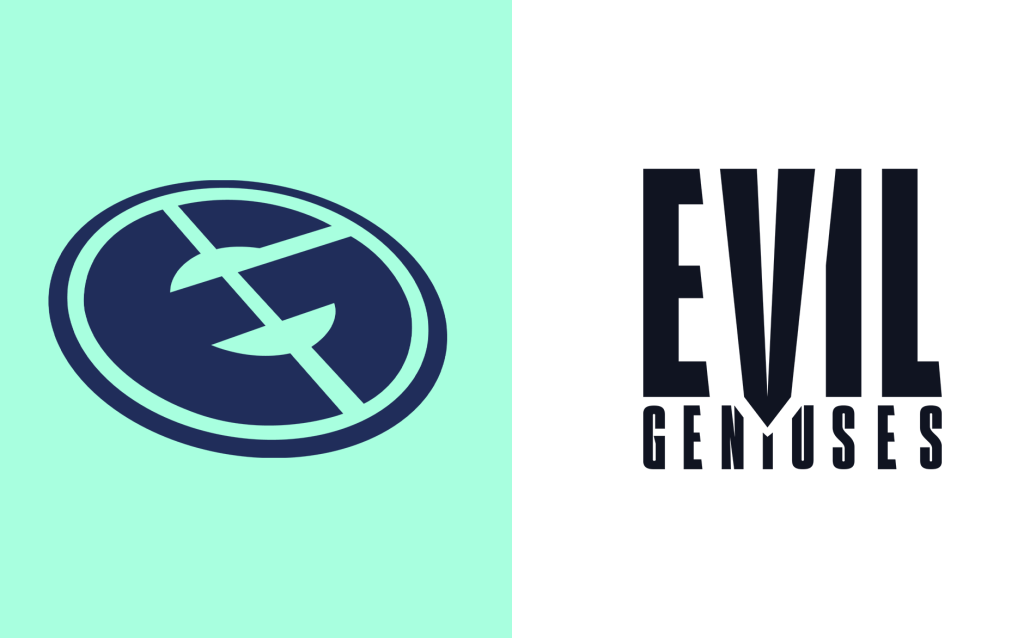
Founded in 1999, Evil Geniuses was a well-respected organisation with a reputation for representing North America on some of the biggest stages in esports. As one of the oldest esports organisations to operate under the same name, the brand was adored by fans across a myriad of genres including old-school strategy games and newer FPS titles such as VALORANT.
After being acquired by investment conglomerate PEAK6 Investments in 2016, Evil Geniuses (EG) rebranded to a wordmark that spelt the brand name, hence replacing the classic fan-favourite logo used by the organisation since 1999. The change left many fans feeling ‘disconnected’ from the organisation.
EG’s botched rebrand is a classic example that a change can alienate existing long-term fans of the organisation. However, strong fan reactions prompted the organisation to replace the wordmark with a logo similar to the classic ‘EG’ style.
In June 2024, Evil Geniuses reverted to the classic ‘EG’ mascot on the brand’s 25th anniversary. Going back to the old logo was a way to honour the brand’s 25-year-old legacy across gaming and esports.
“The idea was to bring the original logo under our banner for the upcoming VALORANT Champions run because we feel like it’s a little bit like righting our wrongs in the past. We feel like that’s the logo that everybody knows so well from EG.” Said Kayci Evans, Evil Geniuses Global Head of Marketing and Brand Partnerships in an exclusive article from Esports Insider.
North Esports
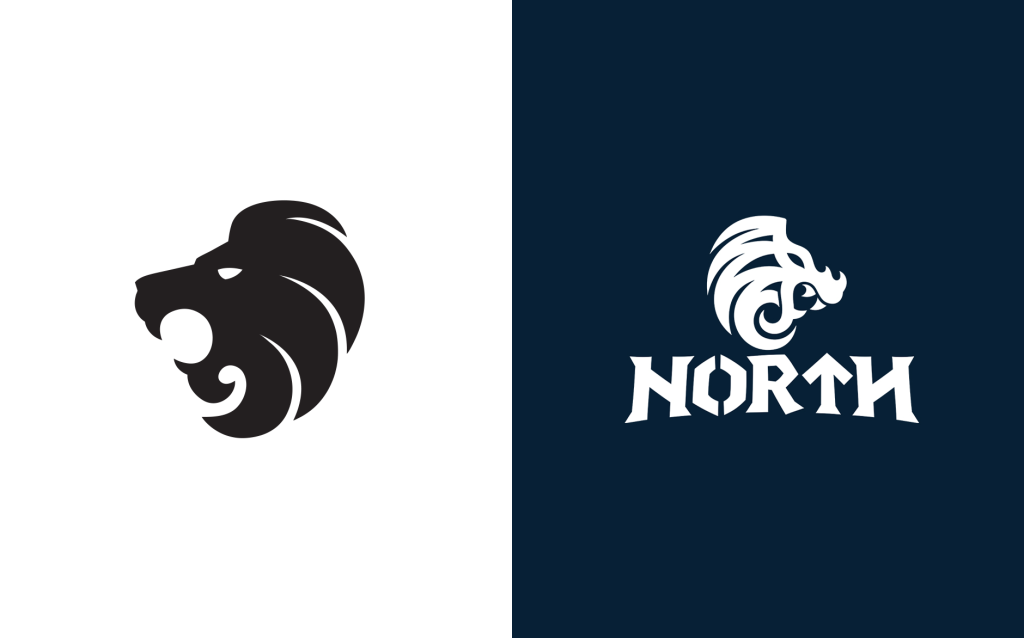
While North Esports didn’t rebrand its logo to something excessively minimal like others on this list, the Danish esports organisation modified the existing lion mascot, giving it a front-forward bite.
An affiliate of renowned football club F.C Copenhagen, North Esports showed promise as an up-and-coming esports organisation with high CS:GO earnings, and for making strides in FIFA esports with the eSuperliga.
The idea behind the revamped lion mascot was to make it look Viking-like, as North wanted to display the brand’s Scandinavian roots. However, the rebrand wasn’t well received, with criticism aimed at the logo looking less like a lion, and ‘more like a boar.’
To hype up the rebrand, the organisation deleted all their social media posts and shuttered its website prior to the announcement. This, however, did more harm than good as the rebrand opened to mixed fan reactions and was ‘underwhelming’.
North later announced its closure in February 2021 as investors chose to shutter the organisation due to the COVID-19 pandemic.
NRG
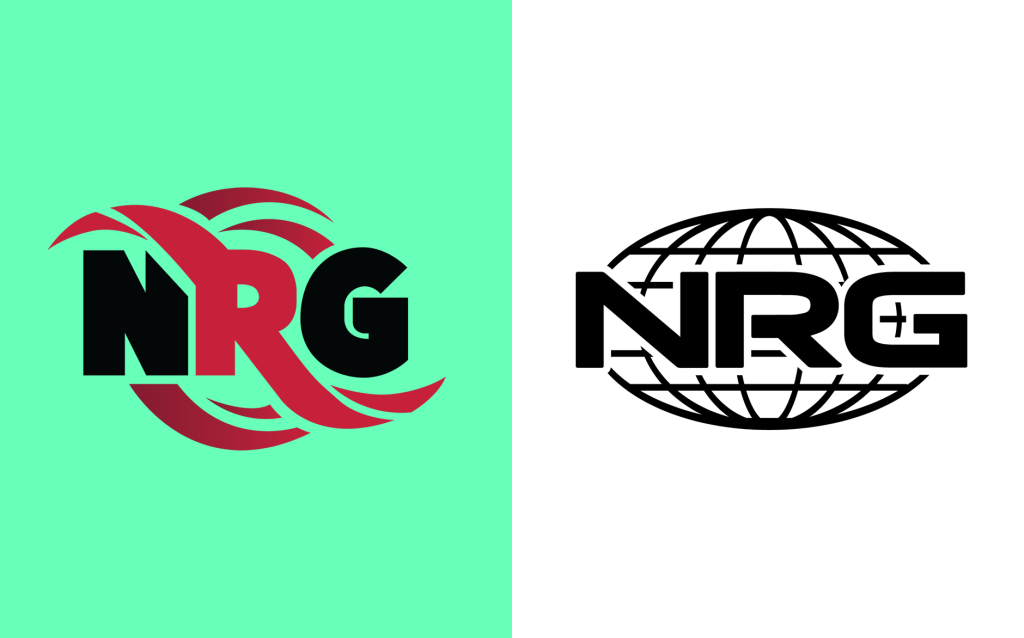
NRG was founded when co-owners of professional basketball team Sacramento Kings decided to venture into esports by purchasing Team Coast’s LCS franchise in 2015. In the years that followed the brand grew quickly into a well-known North American organisation, most notably boasting a team in CS:GO that would become the HLTV number one ranked team in the world.
In 2019, NRG decided to rebrand to a wordmark that accompanied a stencil of a globe in the background.
Fans on Reddit also claimed that the rebrand for the Los Angeles-based organisation looked less like an esports mascot and more like a logo for a ‘TV news special’. The green colour scheme of the new rebrand was criticised, and the organisation misspelt ‘100% unapologetic’ on the initial rebranded brand merchandise, which added fuel to the fan outrage.
As of 2024, the organisation has rebranded to a simple wordmark, incorporating an orange and black colour scheme, thus eliminating the former rebrand’s globe in the background.
